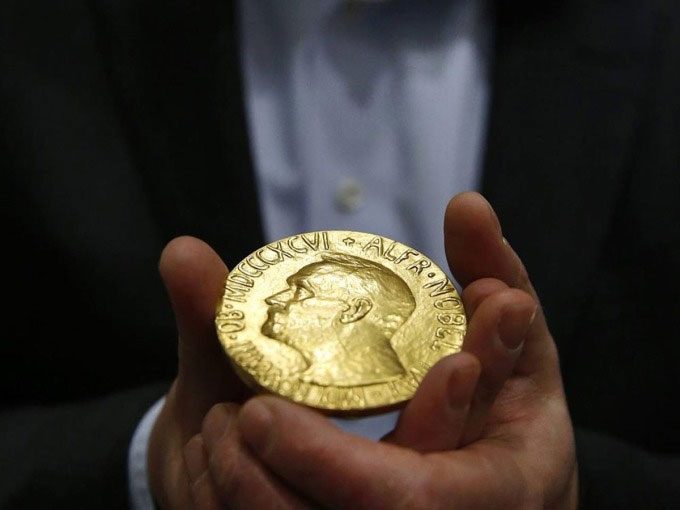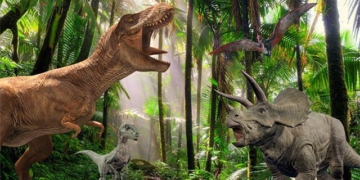Experts predict that the 2022 Nobel Prize in Physiology or Medicine could be awarded for research in cell biology, the genetic basis of diseases, or mRNA technology in Covid-19 vaccines.
The world is currently experiencing a significant advancement in both healthcare and scientific fields, with a growth rate exceeding 1,300% since 1985, according to recent estimates published in the Journal of the American Medical Association. With many unprecedented and groundbreaking breakthroughs, experts indicate that predicting the recipient of the 2022 Nobel Prize in Physiology or Medicine will be more challenging.
Public opinion polls, rankings, and pre-Nobel awards provide the scientific community with additional data to identify strong candidates for the prize. The list includes research that clarifies how cells generate energy, discoveries regarding bacterial chemistry, studies on the genome, and most notably, the mRNA Covid-19 vaccine.
David Pendlebury, a professor at Ross University, has analyzed the frequency of significant papers cited in pre-Nobel awards such as the Lasker or Gairdner prizes to make his predictions. Each year, he compiles a list of “Strong Candidates” for the award. Of the 64 studies he has predicted, several have received the prestigious Nobel medal.
Pendlebury suggests that the 2022 Nobel Prize in Physiology or Medicine may go to Professor Virginia Man-Yee Lee from the University of Pennsylvania, USA, who is one of the researchers who discovered abnormal protein aggregates in various types of cells. This discovery is linked to several neurological diseases, including Parkinson’s, ALS, and frontotemporal dementia.
Professor Man-Yee Lee published this research in 2006, which has since been cited over 4,000 times. Upon examining those citations, Professor Pendlebury noted that experts almost always reference another report published a few months later by Professor Masato Hasegawa from the Tokyo Medical and Dental University, Japan.
“Simultaneous citations of two independent studies are very common in science. Since those two reports, the field of cell research has flourished in many directions. This represents a significant advancement in the quest to find treatments for these two diseases,” Pendlebury stated.
For similar reasons, Pendlebury believes that two scientists, Mary-Claire King from the University of Washington and Stuart Orkin from Harvard Medical School, both in the USA, are also strong candidates. They have made significant contributions to discovering the genetic basis of diseases.
Mary-Claire King identified the role of the BRCA gene mutation in breast and ovarian cancer, revolutionizing cancer screening. Meanwhile, Stuart Orkin identified genetic changes behind sickle cell disease, paving the way for new, promising gene-based therapies.

Nobel medals awarded to winning scientists. (Photo: Nobel Prize).
Another candidate is Professor Stephen Quake from Stanford University, USA, who has made important discoveries in microfluidics techniques used in cell separation. His research laid the groundwork for single-cell sequencing experiments. Professor Quake also advised He Jiankui, a Chinese scientist, in creating the world’s first gene-edited babies using CRISPR technology.
Another factor Pendlebury considers when predicting Nobel Prize recipients is the cyclical nature of the awards. Over the decades, the Nobel Committee has alternated prizes across various fields, including neuroscience, cancer, and infectious diseases.
In 2013, the award went to research in cell transport; in 2016, it recognized the process of cell self-destruction. In 2017, the discovery of how genetic clocks control circadian rhythms received the prestigious medal. In 2019, the Nobel Committee awarded research on how cells sense and adapt to available oxygen. Last year, the scientist who discovered the mechanism for sensing temperature through touch was honored.
Based on previous Nobel laureates, Professor Jason Sheltzer from Yale School of Medicine believes that this year’s award will go to Katalin Karikó and Drew Weissman, who developed mRNA technology for Covid-19 vaccines. “Their research has brought about a radical change in the field of vaccines. To date, billions of vaccine doses have been administered, saving millions from the risk of death due to Covid-19,” Sheltzer remarked.
Sheltzer accurately predicted the winner of the 2018 Nobel Prize in Physiology or Medicine, Professor James Allison, a pioneer in cancer and immunology. He noted that the last time research in the field of epigenetics received a Nobel Prize was in 2006, awarded to Roger Kornberg for his work on how RNA copies are assembled in the human body.
“It has been nearly 20 years since this field was highlighted. I can confidently say it is very valuable this year,” he stated.
The 2022 Nobel Prize ceremony will take place starting on the afternoon of October 3, beginning with the Nobel Prize in Physiology or Medicine. The 2021 Nobel Prize in Physiology or Medicine was awarded to American scientists David Julius and Ardem Patapoutian for their discoveries related to temperature and touch. Their work elucidated how chronic and acute pain relates to various diseases, injuries, and treatment methods.


















































